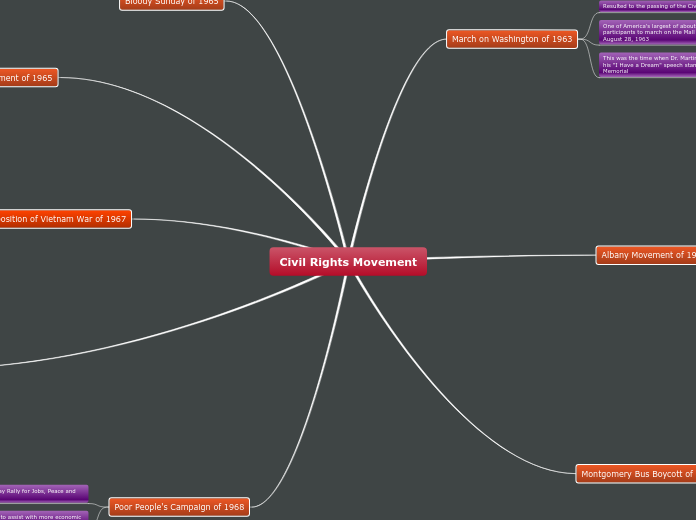by Destiny Capers 5 years ago
1089
Civil Rights Movement

by Destiny Capers 5 years ago
1089

More like this
The idea that blacks and whites should live apart and solve their own problems
Nation of Islam supported the idea
Malcolm X, famous me
When they reached Rock Hill, South Carolina, John Lewis was mobbed badly and becomes chairman of SNCC